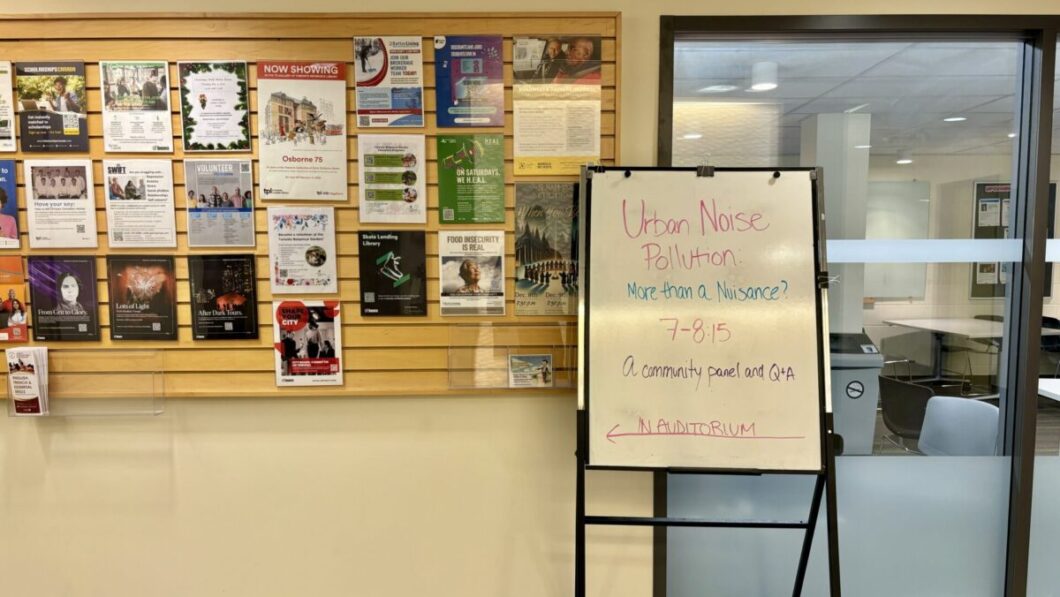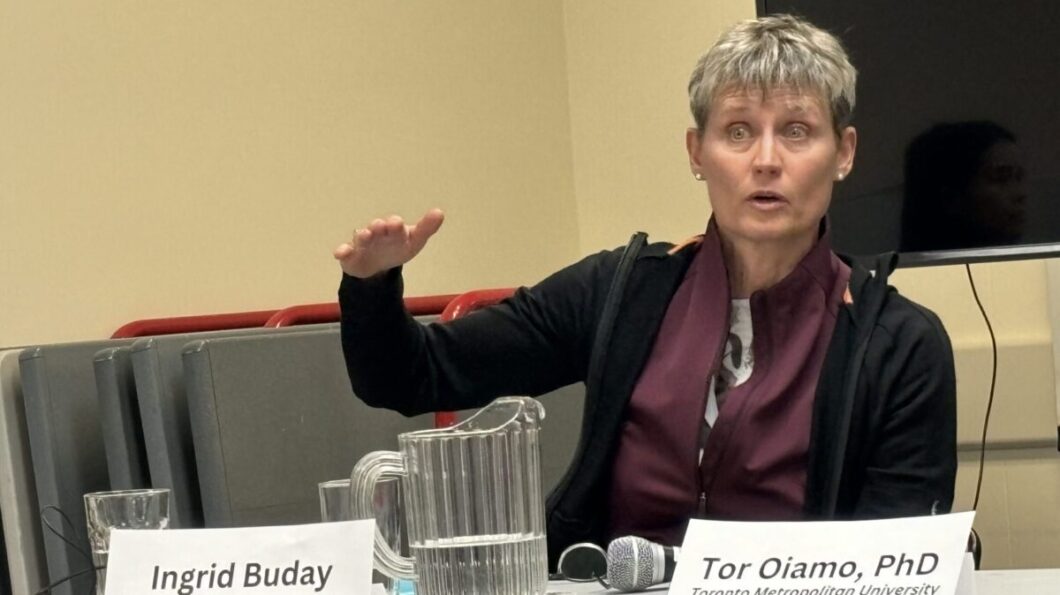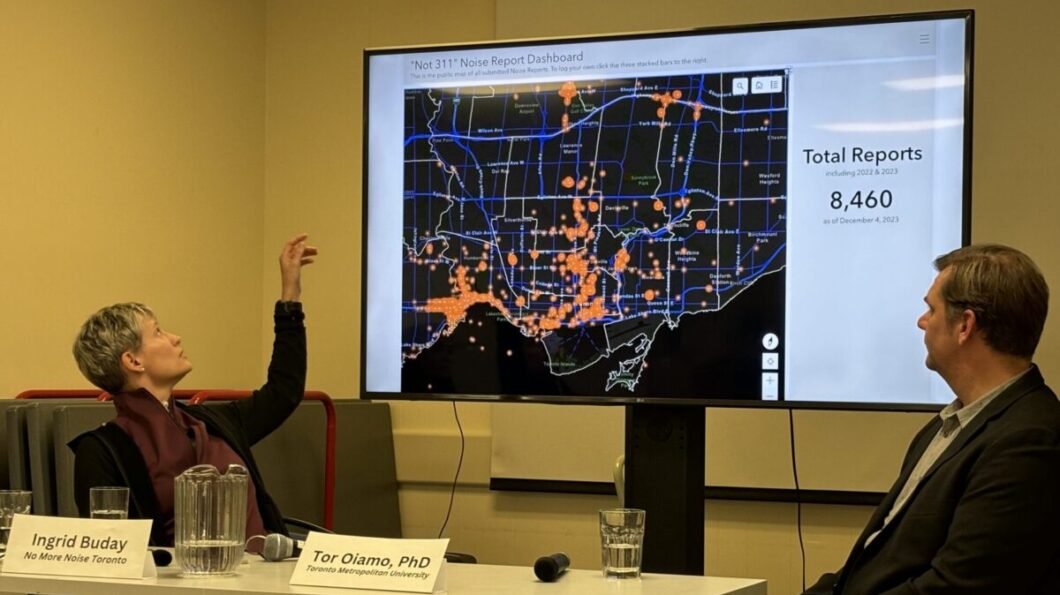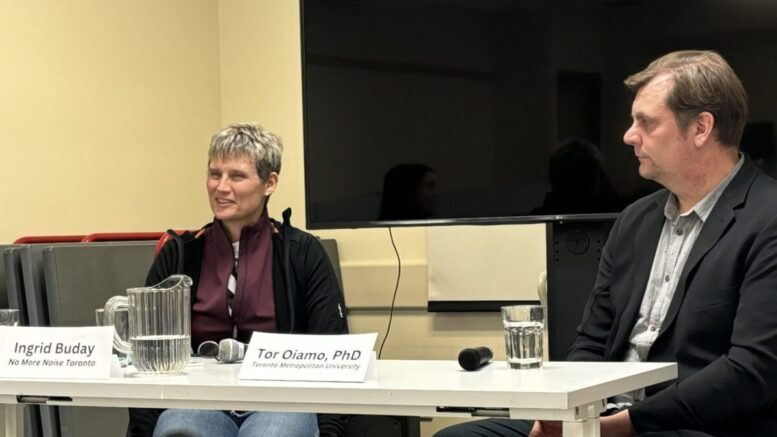A panel of experts recently discussed how Toronto’s constant noise can be detrimental to its citizens at The Toronto Public Library on Lawrence Avenue E.
Ingrid Buday from No More Noise and Dr. Tor Oiamo from Toronto Metropolitan University spoke at an event Dec. 5 to try and raise awareness of the problems the noise in Toronto can have on its population.
The experts say Toronto has a constant noise problem, especially for those who live around major roadways. They say that this is worsened by construction, modified mufflers, and other loud noises that appear throughout the day and night.
This is causing its citizens to have a level of stress that is elevated compared to people who live next to no noise.

Buday believes the noise is constant, and a lot of the disturbing noise comes from moving vehicles with modified mufflers.
According to the Highway Traffic Amendment Act, modifying mufflers to increase the sound they make is illegal, but this has not stopped some people from continuing to do so.
“I think we can all relate to this noise as a stressor, but we’re annoyed and get distracted and maybe not tune into it every time it happens. But it kind of wears and tears you down over a long time,” said Dr. Tor Oiamo, an expert on urban health and sustainability.
“The stress hormones can wreak havoc on many different parts of our system,” Oiamo said. “They cause inflammation in the cardiovascular system, things like high blood pressure have been demonstrated, the strongest evidence is for ischemic heart disease. So that increases our risk for heart attacks.”
‘A constant stress’
Toronto Public Health has released a study called How Loud is Too Loud? detailing the health impacts that Toronto’s constant noise has on its residents.
“The noise creates a constant stress for me. I was diagnosed with situational depression and anxiety. This has increased that,” said Buday.
Under the current noise bylaw, restrictions can begin from 7 p.m., depending on the day of the week and the type of noise. There are several rules within this bylaw detailing all the rules and regulations on when noise is allowed in Toronto.

At first, Buday would call 311, Toronto’s non-emergency line that can be used to file complaints, when she was disturbed by a modified muffler, but says she quickly realized that it was not doing anything.
“311 only collects the data or the noise sources that they can enforce at the time. The city can’t do anything regarding moving vehicles, only the police can,” explained Buday.
Buday started No More Noise Toronto after being completely fed up with the noise in Toronto. She says that she is constantly annoyed by it and that this annoyance drives her to change Toronto.
She then created her own map detailing all the disturbing noises, which she named Not 311. Her tracker is localized to where she lives and is hoping for people in other areas help fill out the map more.

The experts mentioned a bylaw change happening on Jan. 11 and asked that anyone who has been affected by the noise help make a change. They have asked residents to send emails to the city and reach out to her if they would like to get involved.
“We cannot close our ears and our bodies cannot stop listening,” said Buday. “People will say, “Oh, you’ll get used to it. Oh, you’ll get used to it.” No, we don’t.”
CORRECTION: A previous version of this story stated that noise was prohibited from 11 p.m. to 7 a.m. As restrictions depend on the type of noise and time of day, the story has been updated to add this distinction.

